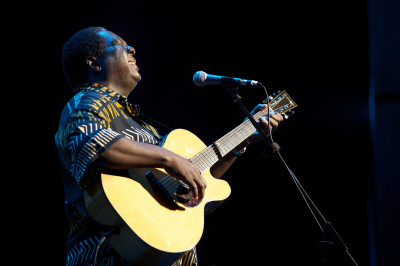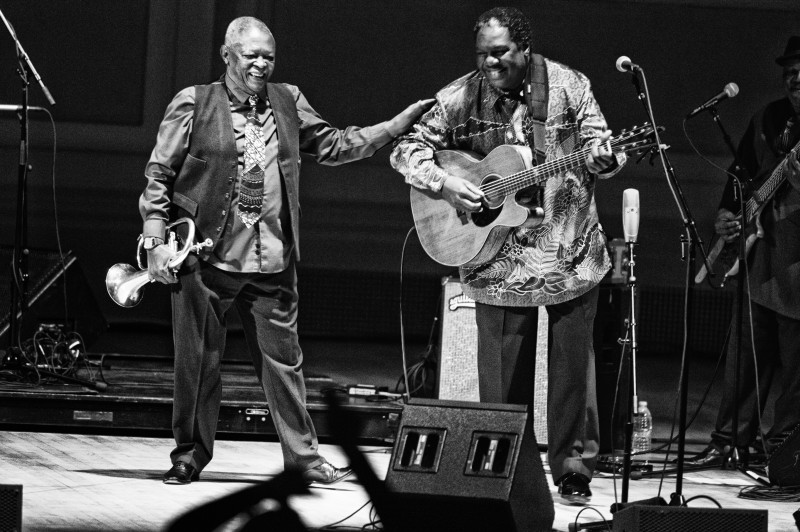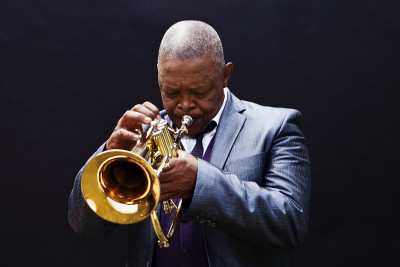It’s been 20 years since the people of South Africa elected their first black president, Nelson Mandela, thus symbolically ending the era of legalized segregation and discrimination known as apartheid. To commemorate the milestone, South African musical legends Hugh Masekela and Vusi Mahlasela perform a cross section of South African music about love, resistance, community, and happiness in their 20 Years of Freedom concert tour, coming to Berkeley on March 11.
Masekela has dazzled international audiences on the trumpet and flugelhorn for over 50 years. Throughout his solo career, he’s worked with Dizzy Gillespie, the Byrds, Fela Kuti, Marvin Gaye, Herb Alpert, Paul Simon, Stevie Wonder and more. His initial stay in the U.S. and enrollment at the Manhattan School of Music wouldn’t have been possible without the help of Harry Belafonte and fellow South African musician and childhood friend Miriam Makeba. In the early 1960s, he released his debut album Trumpet Africaine, and didn’t return home to South Africa until 1990, when Nelson Mandela left Victor Vestor prison a free man.

Around the same time, in the early ’90s, Mahlasela entered the scene performing political folk music. During apartheid, he was held in solitary confinement and harassed by police for writing songs about dignity, revolution, peace, and life. Mahlasela used his songs to heal himself and his listeners, and became known as “The Voice” for his passionate, octave-leaping vocalization. Since then, he’s collaborated with Dave Matthews Band, Sting, Paul Simon, Taj Mahal and others.
Throughout their careers, both singers have composed songs recalling the history of resistance in South Africa. And though both had well known, anti-apartheid anthems — Mahlasela’s “When You Come Back” and Masekela’s “Bring Him Back Home” — this tour marks the first time the musicians have collaborated together onstage.
“We just want to come and celebrate everyone who helped us take apartheid down,” Mahlasela tells KQED.



